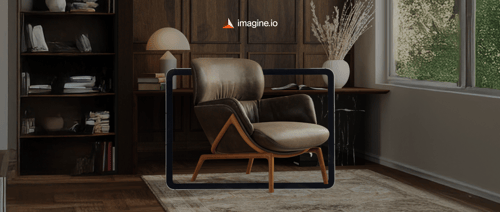The appliance shopping experience was once a tactile affair running your fingers along a refrigerator's smooth handle, testing a dishwasher's buttons, or listening to the soft hum of a high-end oven. Showrooms brought products to life. But as consumers increasingly shop online for everything from smart refrigerators to connected washers, retailers face a daunting question: how do you recreate that hands-on experience in a digital realm? The answer lies in virtual product demos sophisticated 3D and AI-powered tools that let shoppers interact with appliances from their screens. These innovations aren't just enhancing e-commerce; they're transforming the appliance industry, driving engagement, and boosting sales in a market poised for explosive growth.
Quick Listen:
The Surge of Virtual Demos
Online appliance shopping once meant flipping through static images and dense spec lists a practical but uninspiring process. Buyers were left imagining how a smart stove might fit in their kitchen or whether a washer's interface was user-friendly. Virtual demos have changed the game. Leveraging 3D modeling and AI, these tools allow shoppers to rotate a refrigerator 360 degrees, inspect its digital display, or use augmented reality (AR) to visualize it in their home. The experience is dynamic, intuitive, and rich with information, turning passive browsing into active exploration.
This shift aligns with soaring consumer demand for smart, connected solutions. The smart home market is expected to reach USD 600 billion by 2030, driven by a hunger for energy-efficient, convenient appliances. As smart homes become mainstream, the complexity of appliances grows take smart refrigerators, which now offer AI-driven inventory tracking, temperature control, and remote access via smartphones. Virtual demos bring these features to life, letting consumers interact with digital replicas before committing to a purchase.
Retailers are embracing this trend. Industry giants like Samsung, LG, and Whirlpool are embedding virtual demos into their online platforms, while Beko (formerly Arçelik), now the world's second-largest appliance maker, uses these tools to compete in the premium market. The e-commerce appliance market is flourishing, particularly in emerging economies, where rising purchasing power and a preference for smart technology are accelerating online sales.
Real-World Success Stories
Picture a kitchen where appliances aren't just functional but integral to daily life. One major retailer partnered with imagine.io to launch 3D virtual demos for a line of smart dishwashers. Shoppers could explore the appliance's interior, switch between finishes like stainless steel or black slate, and use AR to see how it would look next to their countertops. The impact was striking: time spent on product pages surged by 25%, and sales rose noticeably. Customers cited greater confidence in their choices, thanks to the detailed, interactive experience.
Personalization is another game-changer. AI-powered demos let consumers tailor appliances in real time selecting a vibrant blue for a retro fridge or adjusting a washer's cycle settings. One brand using imagine.io's technology reported a 12% increase in conversion rates after introducing these customization features. Shoppers could craft their ideal appliance, making the purchase feel personal and precise. According to Meticulous Research, trends like AI integration, voice assistant compatibility, and predictive maintenance are resonating with consumers, driving demand for intelligent home solutions.
Smaller retailers are also reaping benefits. By integrating virtual demos into platforms like Shopify, they're competing with industry leaders. The smart appliances market, expected to grow from USD 42.51 billion in 2025 to USD 81.05 billion by 2033 at an 8.4% CAGR, offers opportunities for businesses of all sizes. Urbanization, rising disposable incomes, and a boom in home remodeling projects, particularly in Western markets, are fueling this growth.
Navigating Challenges
Virtual demos hold immense potential, but they're not without obstacles. Developing high-quality 3D models, AI algorithms, and AR features requires substantial investment, which can strain smaller retailers operating on tight budgets. This creates a risk of market disparity, where only large players can afford cutting-edge tools. Additionally, crafting demos that work seamlessly across devices whether a smartphone, tablet, or desktop demands technical expertise.
Consumer trust poses another hurdle. Some shoppers question whether a polished 3D model accurately reflects the physical product. A glitchy interface or low-quality rendering can undermine confidence more than a simple photo ever would. Privacy is also a concern, as virtual demos often collect data on user interactions, such as which features are explored most. Retailers must prioritize transparency and robust data protection to maintain trust.
The Rewards of Innovation
Despite these challenges, the benefits are compelling. Virtual demos drive conversions by empowering shoppers to make informed decisions, reducing the uncertainty that fuels returns. Retailers using 3D demos have reported return rates dropping by up to 8%, a significant win in an industry where returns are costly. Marketing costs also shrink, as virtual demos eliminate the need for expensive physical showrooms, allowing brands to showcase entire catalogs online.
For consumers, virtual demos are a time-saver, enabling them to evaluate multiple appliances in minutes from anywhere. They also support smarter choices shoppers can test a smart fridge's energy-saving settings or explore a washer's IoT features, aligning purchases with priorities like sustainability.
The Road Ahead
The trajectory for virtual demos is bold and promising. With the smart appliances market projected to grow at an 8.4% CAGR through 2033, fueled by technological innovation and increased home improvement spending, these tools are set to become ubiquitous. Virtual reality (VR) could push the boundaries further, offering fully immersive experiences where shoppers “cook” on a virtual stove or organize a smart fridge in a digital kitchen. This isn't a distant dream it's the next evolution.
Retailers must act decisively to stay competitive. Investing in high-quality, user-friendly virtual demos is critical in a market where engagement and convenience are paramount. Collaborating with innovators like imagine.io can help smaller players keep pace, ensuring they capture the growing wave of tech-savvy shoppers. Above all, building trust is essential demos must be accurate, intuitive, and transparent about data use.
As you browse an online store, rotating a 3D model of a connected dryer or customizing a smart oven to suit your kitchen's aesthetic, the shift is palpable. Virtual demos are more than a trend they're a cornerstone of the future of appliance sales. In an era where every interaction matters, they're proving that technology can bring the showroom's magic to your screen, redefining how we shop for the machines that power our homes.
Disclaimer: The above helpful resources content contains personal opinions and experiences. The information provided is for general knowledge and does not constitute professional advice.
You may also be interested in: 3D Product Photography for E-Commerce – imagine.io
Struggling with expensive, outdated product visuals that slow down your creative process and stunt eCommerce growth? imagine.io's AI-powered platform empowers furniture, home décor, and textile brands to effortlessly produce striking 3D images, immersive videos, AR experiences, and interactive configurators. Cut production costs up to 70%, boost conversions 5X, speed up prototyping, and supercharge your online sales. Ready to elevate your product visuals and captivate customers? Book a demo with imagine.io today!
Powered by flareAI.co





.png?width=500&name=How%20to%20Add%20a%203D%20Product%20Configurator%20to%20Your%20WordPress%20Website%20(Complete%20B2B%20Guide).png)
















%20(1).png?width=500&name=Why%20Exploded%20Mattress%20Views%20Matter%20(And%20How%20to%20Generate%20Them)%20(1).png)
.png?width=500&name=Best%20Shopify%20Product%20Configurator_%20How%20to%20Choose%20the%20Right%20One%20(2).png)
.png?width=500&name=Why%20Exploded%20Mattress%20Views%20Matter%20(And%20How%20to%20Generate%20Them).png)



.png?width=500&name=Best%20Shopify%20Product%20Configurator_%20How%20to%20Choose%20the%20Right%20One%20(1).png)







.png?width=500&name=How%203D%20Rendering%20Can%20Make%20or%20Break%20Your%20Industrial%20Design%20Pitch%20(1).png)








%20with%20Digital%20Twins%20and%203D%20Visualization.png?width=500&name=Optimizing%20Your%20Digital%20Asset%20Management%20(DAM)%20with%20Digital%20Twins%20and%203D%20Visualization.png)




.png?width=500&name=Styling%20Home%20Decor%20for%202025_%20From%20Global%20Influences%20to%20Playful%20Personalization%20(1).png)